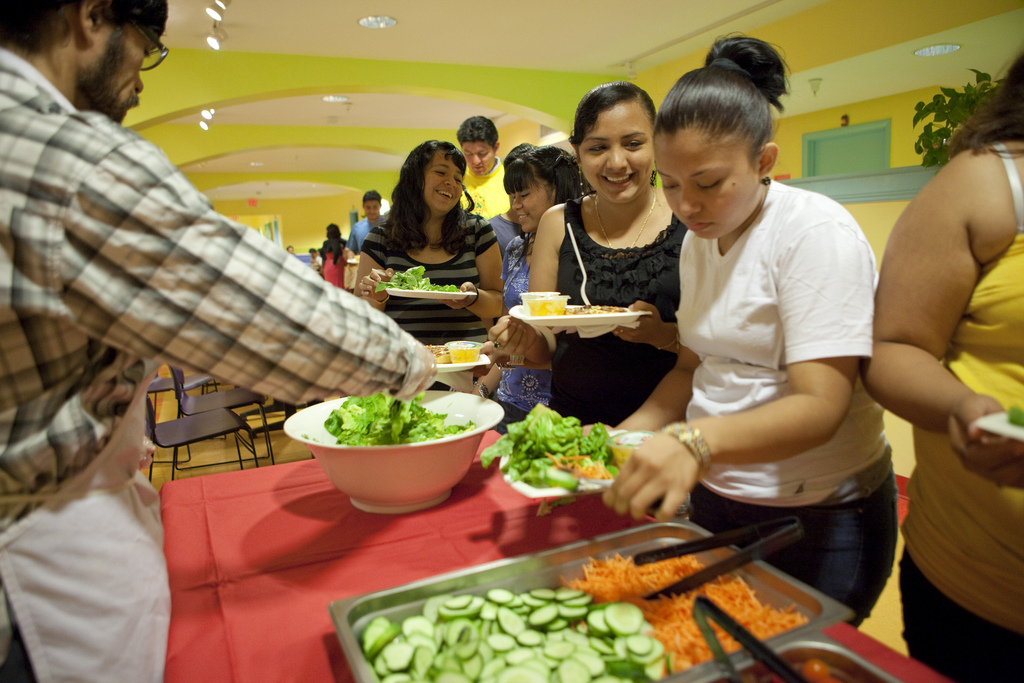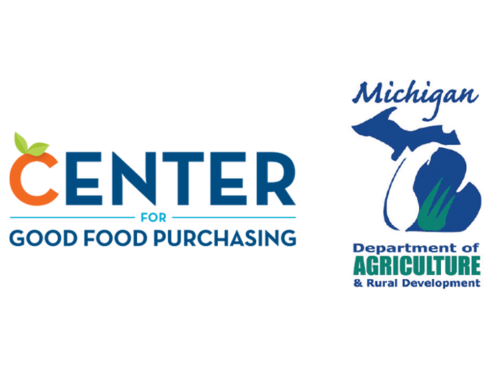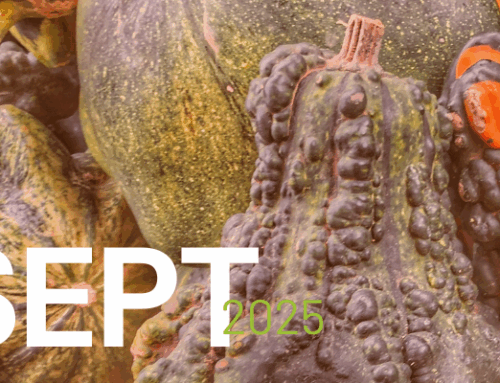FOR IMMEDIATE RELEASE
Contact: Lea Howe
lea@dcgreens.org
202.468.0176
D.C. Public Schools To Become First on East Coast to Adopt Good Food Purchasing Program
Bill Aims to Improve School Meal Nutrition and Quality, Boost Local Economy

WASHINGTON (December 4, 2018)—The Council of the District of Columbia voted unanimously today to ensure long-term commitment to implementing the Good Food Purchasing Program as part of a larger bill, The Healthy Students Amendment Act, that aims to improve student health and wellness. D.C. Public Schools will be the nation’s fifth to commit to the Program, which emphasizes five value areas: local economies, nutrition, a valued workforce, animal welfare and environmental sustainability. The measure is the culmination of a year-long effort by a diverse coalition of parents, D.C. Food and Nutrition Services, labor unions, local business leaders and community groups working to ensure that D.C. students have access to healthy, high quality meals every day.
“With the Good Food Purchasing Program, we have a huge opportunity to use our tax dollars to ensure that our children have nutritious and culturally appropriate options while also supporting good jobs and building up our local economy,” said LaTòn Dicks, DCPS School Food Advisory Board Member and grandparent of a DCPS student. “DCPS’ food purchasing can have ripple effects that improve our regional food system at the same time that we improve the quality of meals for the nearly 33,000 students the District feeds every day.”
DCPS is the first school district on the East Coast to adopt the Good Food Purchasing Program and hopes to build on the success of the Los Angeles Unified School District (LAUSD). Since 2012, LAUSD has directed $30 million annually to local food purchases, providing 45 million annual servings of locally, sustainably-produced bread, and creating more than 220 well-paying food chain jobs. In addition to LA, the Program has been officially adopted by eight institutions in San Francisco, Oakland, and Chicago, impacting over $525 million public dollars every year.
“As a mission-driven nonprofit that’s serving healthy, locally-sourced school meals at 12 D.C. Public Schools, providing culinary job training to unemployed adults, and creating living wage jobs right here in D.C., we share the core values of GFPP,” said DC Central Kitchen’s Director of Procurement and Sustainability Amy Bachman, who managed the organization’s GFPP baseline assessment. “Our city’s school nutrition programs have come a long way since the landmark Healthy Schools Act of 2010, and we’re pleased that our long-standing partnership with DCPS can now leverage this national framework for continued progress.”
DCPS is scheduled to complete a baseline assessment of its current food purchasing practices by the end of this year. This baseline, combined with input from parents and other community stakeholders, will inform goals for the following year.
DCPS Food Service Director Rob Jaber has recognized the importance of promoting the value categories of the Good Food Purchasing Program and is excited at the prospect of how the program will impact D.C. while influencing the supply chain throughout the east coast: “Our participation in the program is a solid first step, and we’re thrilled that we can harness the buying power of our nearly 10 million meals to better serve our workforce, our community and most importantly, our students.”
“We applaud the D.C. Council and DCPS Food and Nutrition Services for working to bring this groundbreaking program to the District. We are fortunate to have a Food Service Director who is responsive to community feedback about DCPS’ school meal programs and has embraced the Good Food Purchasing Program as a tool to improve food quality,” said Lea Howe, Director of School Food Initiatives at DC Greens, which leads the coalition of community groups, parents, labor unions and local farmers and businesses that ushered in this measure. DC Greens and DCPS Food and Nutrition Services co-convene a School Food Advisory Board that consists of hundreds of D.C. public school community members who provide feedback and suggest solutions to what they have identified as the top issues in school food.
Local coalitions in Austin, Buffalo, Chicago, Cincinnati, Denver, New York City, Minneapolis/St. Paul, Oakland and San Francisco are also leading active campaigns to work with school districts, hospitals and other institutions to adopt the Good Food Purchasing Program. As more institutions participate in the Program, the collective impact builds momentum for the larger transformative change much needed in our food system and in our economy.
Partners supporting this work include: DC Greens, DCPS Food and Nutrition Services, the DC Food Policy Council, DC Central Kitchen, The Common Market, the Georgetown Harrison Institute, The Metropolitan Washington Council of Governments, The Green Scheme, 4PFoods, Chesapeake Foodshed Network, Animal Welfare Institute, ASPCA, Center for Good Food Purchasing, Domestic Fair Trade Association, Farm Forward, Food Chain Workers Alliance, Friends of the Earth, Good Food for All Network, HEAL Food Alliance, Johns Hopkins University Center for a Livable Future, PolicyLink, Real Food Media, School Food Focus, Slow Food USA, Union of Concerned Scientists and United Food and Commercial Workers Local 400.
###
Photo: Ezra Gregg; Lunch at Next Step Public Charter School, DC Central Kitchen





